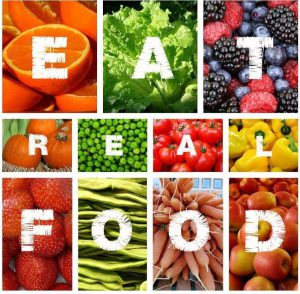
Organic foods are very popular. While many are turning to them for the benefits they provide to the environment, some wonder whether this way of producing food can also be better for health. Let’s take a closer look at this.
What is organic food?
Organic food comes from organic farming. In Quebec, this designation is regulated, which means that farmers have to abide by many rules to be able to describe their products as “organic”. For example, organic foods are grown without synthetic pesticides, without synthetic fertilizers, without the use of GMO seeds, without antibiotics (in prevention) or growth hormone, and without adding preservatives or synthetic additives to Processed products.
More nutrients?
Several studies have examined the nutritional quality of organic foods compared to conventional-grown foods. On the other hand, overall they do not seem to be much more nutritious than the latter. Nor should we forget that many factors can influence the nutritional value of food: the soil, the climate, the variety, the amount of light received… These factors may even have more impact than growing organically or not.
Fewer pesticides?
Not surprisingly, organic foods generally have fewer traces of pesticides than conventional foods. However, this does not necessarily mean that they are better for health. In fact, small doses of pesticides consumed in food do not seem to pose any health risks. If they were harmful even at a small dose, the fact remains that these risks are minimal compared to the benefits of consuming fruits and vegetables. We are more likely to harm our health by depriving ourselves of these foods.
That is another story for farmers. Pesticides to which they are exposed to higher doses and higher frequencies than consumers appear to be associated with health problems such as Parkinson’s, congenital malformations and miscarriages.
Thus, even if organic foods are not healthier than conventional foods, the fact remains that organic farming brings benefits to the environment and to agricultural producers. So it’s a sensible choice to turn to them whenever possible.
Inconclusive studies…
Studies are very difficult to interpret. Soil quality, temperature and light quality during the growing season or the seed variety are all factors that can influence the nutrient content of foods. However, because these factors are often uncontrolled, it is impossible to make fair comparisons.
In addition, many studies are skewed by lifestyle-related factors of organic consumers. These are often more physically active, usually do not smoke and drink little or no alcohol. It is just as difficult to argue that organic foods are more beneficial to health than conventional foods.
In short, there is still too little evidence to conclude on the differences between the two types of food.
What about vitamin C?
However, studies seem to agree on one thing: conventional foods would contain less vitamin C than organic foods. Very interesting, certainly, but do not rejoice too quickly. Although higher, these vitamin C levels would not be important enough to have a real impact on our health. In addition, all Canadians already consume daily the recommended amount for this vitamin.
Pesticides… a whole different story!
If nothing is yet really proven nutritional value, organic products can however boast of not containing any pesticides, herbicides or artificial fertilizers. In 2004-2005, the Department of Agriculture, Fisheries and Food (MAPAQ) analyzed approximately 500 samples of non-organic fresh fruit and vegetables from Quebec. The results showed that 33% of the samples contained pesticide residues and that 1.5% of them had concentrations above the legal standards. It was pointed out, among other things, the raspberries and the romaine lettuce. However, these concentrations were not high enough to have a detrimental impact on health.
Antioxidant hypothesis
A very interesting hypothesis has recently been issued concerning the antioxidant content of organic foods. In addition to being excellent for our health, one of the most important functions of antioxidants is to protect plants from insect pests. Since organic foods are not sprayed with pesticides, some scientists argue that these foods have somehow been “forced” to develop more antioxidants to protect themselves from pests.
The purchase of organic products: an environmental choice
The adoption of organic food is above all an environmental choice. This type of agriculture is more respectful of land and resources. Compared to traditional agriculture, organic farming pollutes less water and soil and produces less greenhouse gases. This reason alone would suffice to encourage organic production!
The importance of local purchase
The next time you buy organic, pay special attention to the packaging and opt for a Quebec product. You will find that many organic products are coming from elsewhere! Remember that by walking a few thousand kilometers to get to your plate, they contribute greatly to increase the emission of greenhouse gases… Be vigilant!
